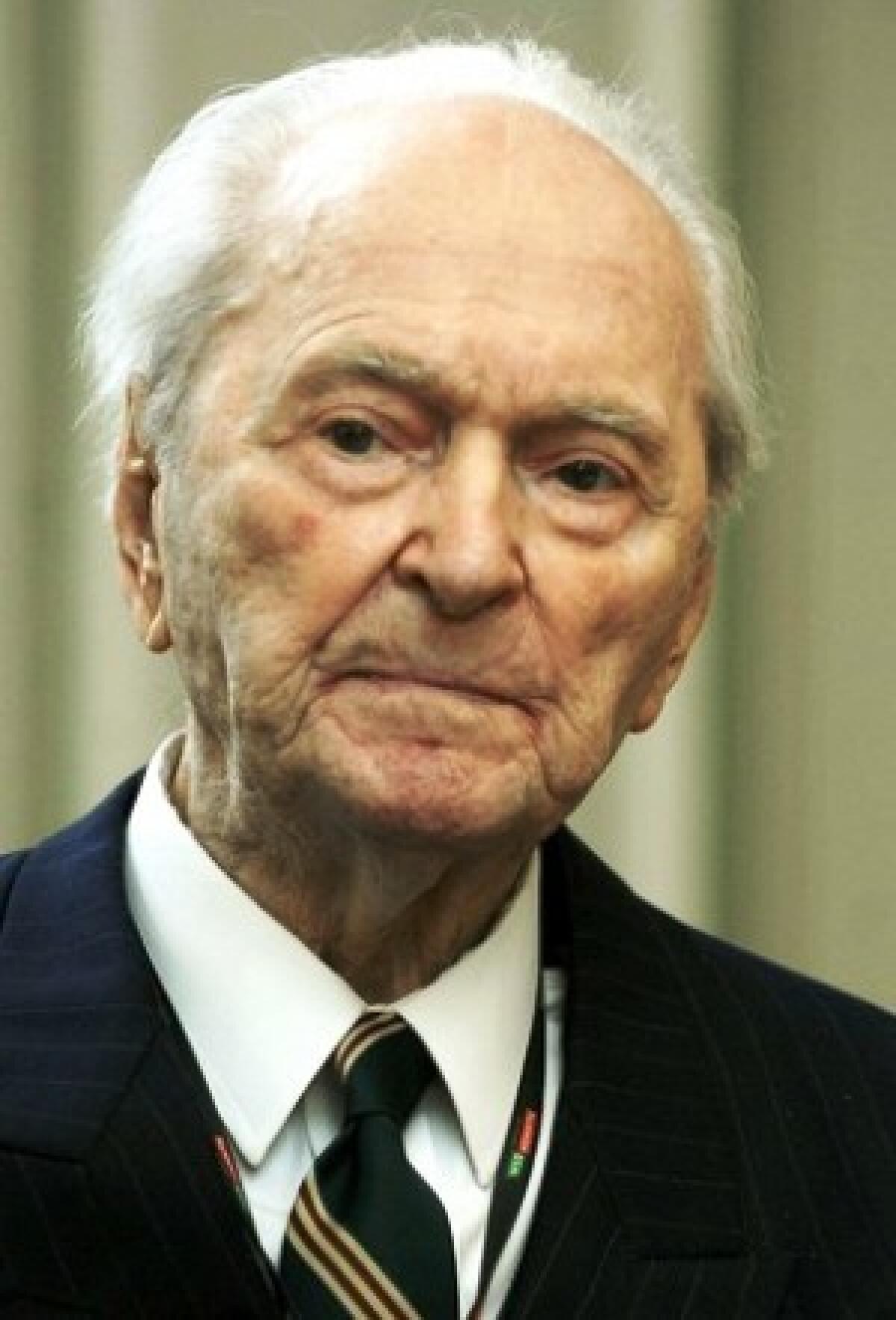Bela Kiraly dies at 97; one of the military leaders of Hungary’s 1956 revolution

- Share via
Bela Kiraly, one of the military leaders of Hungary’s short-lived anti-Soviet revolution in 1956, has died, the government said. He was 97.
A brief Defense Ministry statement provided no other details. The daily newspaper Magyar Nemzet reported that Kiraly died Saturday morning in Budapest.
Kiraly served in the Hungarian army during World War II and later led its military academy.
In 1952, he was sentenced to death on trumped-up conspiracy charges by Hungary’s Stalinist regime, but the sentence was later commuted to life in prison.
The October 1956 revolution, aimed at overthrowing the communist regime, lasted less than two weeks before it was crushed. Kiraly had been freed from prison just weeks before the revolution, and during it he was named Budapest’s military commander and head of the National Guard.
Kiraly’s task was to organize the police, army and various groups of insurgents into a cohesive body meant to help Prime Minister Imre Nagy’s new multiparty government stabilize the country.
But when more than 100,000 Soviet troops and some 4,500 tanks overran the country, the Hungarians could do little to stop their advance.
According to historian Ignac Romsics, Kiraly “judged that any resistance would be suicidal” and decided to flee to Austria with his staff.
Kiraly continued to advocate for the revolution’s cause and testified at the United Nations about the 1956 events and Soviet brutality.
“It wasn’t the revolution that failed,” Kiraly told the Associated Press in 2006. “The Soviets’ unprecedented superiority of force defeated the revolutionary government in an undeclared war, but nobody in Hungary wanted to overthrow Imre Nagy.”
Kiraly settled in the United States, becoming a citizen in 1965. He earned a doctorate in history at Columbia University and taught military history at Brooklyn College of City University of New York.
Kiraly was born in Kaposvar, in southwest Hungary, on April 14, 1912.
In 1989, the last full year of Hungary’s communist regime, Kiraly was rehabilitated. He gave a speech at the June 16 reburial of Nagy and other revolutionary leaders, one of the key events in Hungary’s return to democracy.
He was elected to a four-year term in parliament in the first post-communist elections in 1990 and served as vice chairman of its defense committee. Later, he was a government advisor on military reforms.
Kiraly wrote several books in English and Hungarian, mainly about Hungarian history and the 1956 revolution, which he saw as the first step toward democracy in Hungary.
“It was the start of the series of events -- the end of communism -- for which we had to wait another 33 years,” he said.
Start your day right
Sign up for Essential California for the L.A. Times biggest news, features and recommendations in your inbox six days a week.
You may occasionally receive promotional content from the Los Angeles Times.



